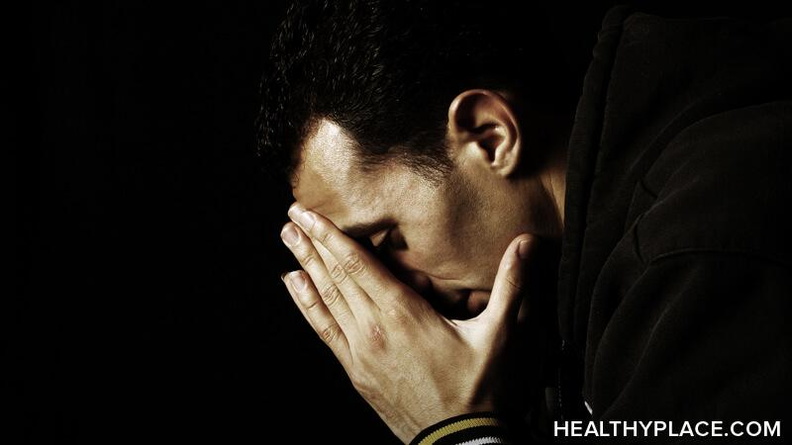First Week of an Inpatient Rehab Addiction Program

In all honesty, the first week of addiction treatment at an inpatient drug rehab center is probably not going to be pleasant. I’m not saying this to scare you, but to prepare you for what is most likely going to be a rough week.
During this first week, you will be getting adjusted to a new structured environment and will begin to think more clearly since your head will no longer be clouded by the effects of drugs or alcohol. At this point in the recovery process, you may be angry, in despair, or completely shut off emotionally. However negative your first week may be, it is important to stick with the inpatient rehab addiction program and your commitment to sobriety in order to successfully recover. No matter how miserable you may feel right now, it will pass; do not let the experience of your first week set the tone for the rest of treatment because things are going to get better. Addiction recovery is a long process, but it is worth it.
Treatment program: Lauren Hardy M.A., writes on behalf of Mount Regis Center, which specializes in the treatment of addiction and co-morbid mental health disorders.
Drug, Alcohol Addiction Treatment Process
The inpatient rehab addiction program, following the detoxification process, is the phase of treatment that is meant to address psychological dependence to substances and to treat any underlying mental health problems (What is Dual Diagnosis?). During your first week, you will start participating in a series of counseling sessions in a variety of different settings. Since every rehab program is different, the treatment and therapy provided at each one may vary, but the main focus for each program is helping the addict to heal psychologically and physically from his or her addiction. The type of addiction that you are struggling with, how long you have been using and other personal factors will determine how your treatment plan is developed and what therapeutic methods you will be engaged in. Some of the most common treatment methods that will likely be a part of your addiction treatment plan include:
Medication management: While there is no medication that will magically cure addiction, it is often used in rehab treatment in order to control the unpleasant symptoms of withdrawal and manage the symptoms of co-occurring mental health disorders. You will meet regularly with a psychiatrist or physician who will monitor medication effectiveness and make any necessary changes.
Individual therapy: Individual therapy is used to give patients one-on-one time with a therapist so that they are able to try to get at the underlying reason for why they began using in the first place. This is also a time where you can address any specific concerns and learn healthier coping strategies. (read: Drug Addiction Therapy and Counseling)
 Group therapy: Group therapy is the main therapeutic approach for a lot of addiction treatment programs and it provides patients with the opportunity to talk with others who are struggling with similar issues. Group therapy has many different topics that cover things such as social skills, how to identify triggers, substance abuse education, and relapse prevention.
Group therapy: Group therapy is the main therapeutic approach for a lot of addiction treatment programs and it provides patients with the opportunity to talk with others who are struggling with similar issues. Group therapy has many different topics that cover things such as social skills, how to identify triggers, substance abuse education, and relapse prevention.
Family therapy: Family therapy is an extremely important part of the treatment process, as addiction not only affects the addict but the whole family. During these sessions, family members can have the chance to express how they are feeling and can also learn more about the disease of addiction. Through family therapy, damaged relationships can be slowly put back together.
Recreational therapy: Recreational therapy is usually provided, in addition to traditional therapy, in order to help patients go beyond emotional and behavioral recovery; healing the mind, body, and soul. Some recreational activities can include yoga, arts and crafts, gym, meditation, or sports.
Depending upon the drug or alcohol addiction rehab program that you choose and your specific treatment needs, you may participate in some or all of the therapies listed above. Some programs offer more services that patients can choose to participate in. If you would like more specifics about a weekly routine in an addiction program, directly contact the program that you are considering and they will be able to answer any questions you may have.
Remember that with the help of an inpatient rehab addiction program and support from those around you, sobriety is possible.
This article is part 2 of a 3 part series.
- First 48 Hours in a Chemical Dependency Program
- First Week of an Inpatient Rehab Addiction Program
- Leaving an Addiction Rehab Program
Related Inpatient Rehab Addiction Program Articles
- Admission to Inpatient Mental Health or Addiction Treatment
- Pros and Cons of Inpatient Drug Rehabilitation Programs
You can also find Lauren Hardy on Google+.
APA Reference
Hardy, L.
(2014, June 26). First Week of an Inpatient Rehab Addiction Program, HealthyPlace. Retrieved
on 2026, March 4 from https://www.healthyplace.com/blogs/mentalhealthtreatmentcircle/2014/06/first-week-of-an-inpatient-rehab-addiction-program
Author: Lauren Hardy, MA
During this first week, you will be getting adjusted to a new structured environment and will begin to think more clearly since your head will no longer be clouded by the effects of drugs or alcohol. At this point in the recovery process, you may be angry, in despair, or completely shut off emotionally. However negative your first week may be, it is important to stick with the inpatient rehab addiction program and your commitment to sobriety in order to successfully recover. No matter how miserable you may feel right now, it will pass; do not let the experience of your first week set the tone for the rest of treatment because things are going to get better. Addiction recovery is a long process, but it is worth it.